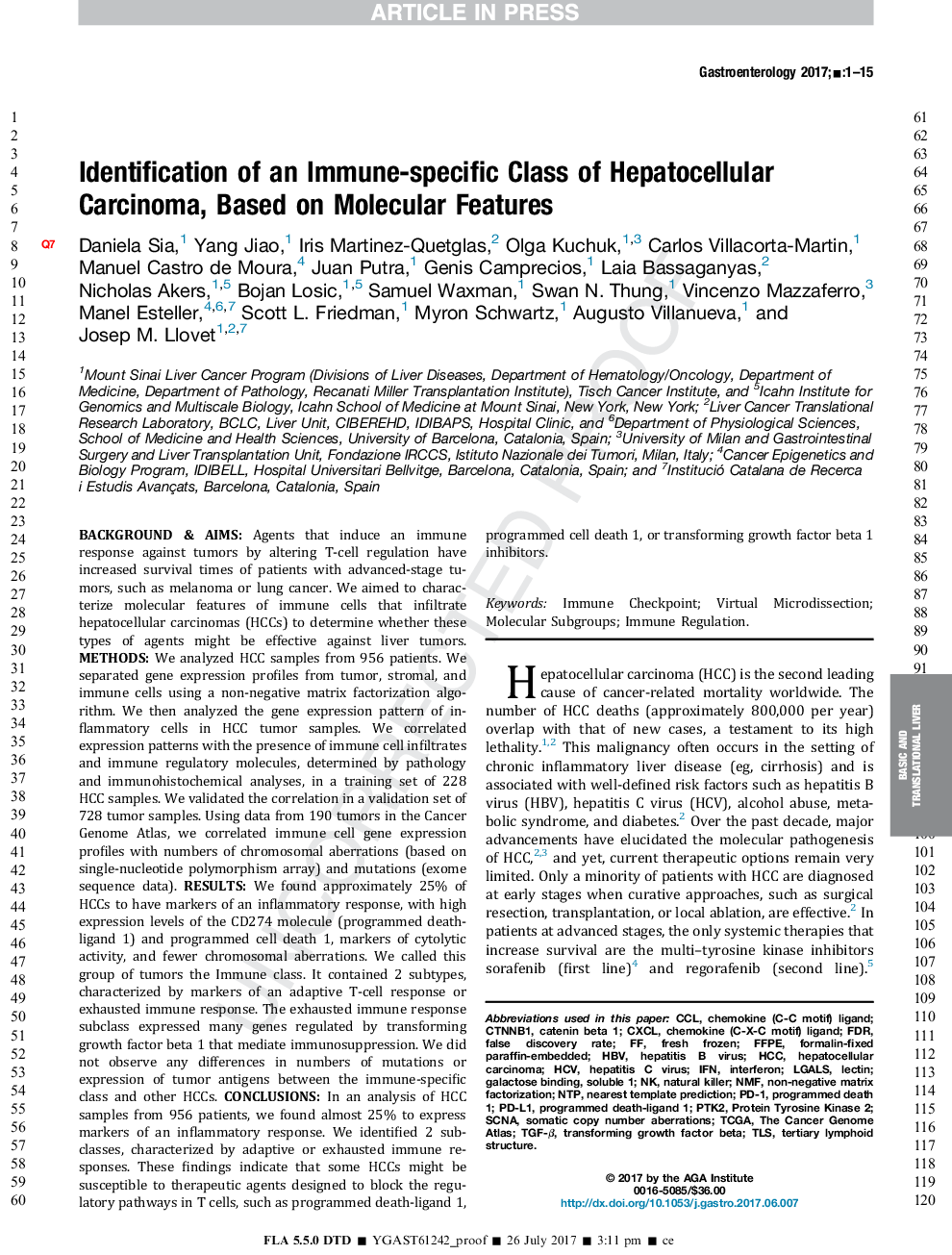| Article ID | Journal | Published Year | Pages | File Type |
|---|---|---|---|---|
| 5658632 | Gastroenterology | 2017 | 15 Pages |
Abstract
In an analysis of HCC samples from 956 patients, we found almost 25% to express markers of an inflammatory response. We identified 2 subclasses, characterized by adaptive or exhausted immune responses. These findings indicate that some HCCs might be susceptible to therapeutic agents designed to block the regulatory pathways in T cells, such as programmed death-ligand 1, programmed cell death 1, or transforming growth factor beta 1 inhibitors.
Keywords
PTK2CCLCXCLTCGASCNAMolecular subgroupsCTNNB1Tertiary lymphoid structureNMFTGF-βTLSFDRPD-L1NTPPD-1Catenin Beta 1natural killerHCCFFPEThe cancer genome atlasinterferonIFNImmune checkpointTransforming Growth Factor BetaNon-negative matrix factorizationformalin-fixed paraffin-embeddedLectinchemokine (C-C motif) ligandchemokine (C-X-C motif) ligand Programmed death 1programmed death-ligand 1Immune regulationfalse discovery rateHBVHCVHepatitis C virushepatitis B virusprotein tyrosine kinase 2Hepatocellular carcinoma
Related Topics
Health Sciences
Medicine and Dentistry
Gastroenterology
Authors
Daniela Sia, Yang Jiao, Iris Martinez-Quetglas, Olga Kuchuk, Carlos Villacorta-Martin, Manuel Castro de Moura, Juan Putra, Genis Camprecios, Laia Bassaganyas, Nicholas Akers, Bojan Losic, Samuel Waxman, Swan N. Thung, Vincenzo Mazzaferro, Manel Esteller,
